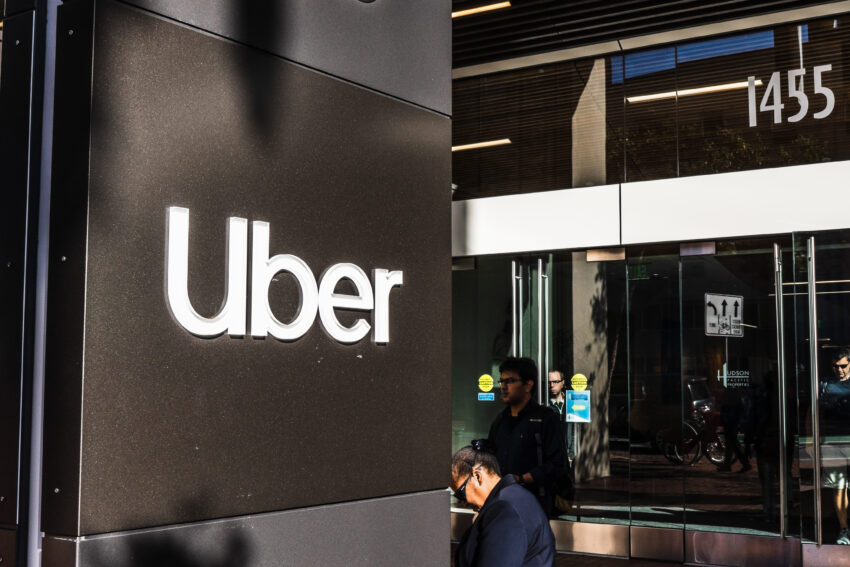
Uber has recorded the first operating profit in its history, after trips rose by more than a fifth in the last year.
The American company, best known for its ride-hailing app, recorded pre-tax earnings of $326m (£255m) from its operations after a rise in demand led to 22% more trips booked on the platform in the year to the end of June.
In the previous year, the company recorded an operating loss of $713m (£558m).
Uber has racked up tens of billions of dollars worth of losses since it first reported details of its finances in 2014 after company executives pursued a relentless plan for global expansion.
The tech giant has previously reported profits after tax, but only because of revaluations of its equity investments or money gained by disposing of assets rather than from its operations.
Turnover rose by 14% to $9.2bn (£7.2bn), which is slightly below the predictions of Wall Street traders.
However, costs for the company grew by only 1%. The slow rate of growth in costs was one of the areas hailed by Uber’s chief executive as a factor in its first quarterly rise in operating profit.
Dara Khosrowshahi, who has led the firm since 2017, said: “Robust demand, new growth initiatives, and continued cost discipline resulted in an excellent quarter, with trips up 22% and a GAAP [generally accepted accounting principles] operating profit, for the first time in Uber’s history.”
He added: “These results also translated into strong driver and courier engagement, with six million drivers and couriers earning a record $15.1bn (£11.8bn) during the quarter.”
Shares in the company rose by 1% in pre-market trading on Tuesday after executives improved their forecasts for the present quarter.
Uber now expects earnings before interest, taxes, depreciation, and amortisation to land between $975m (£763m) and $1.025bn (£803m), compared with an estimate among Wall Street investors of $915m (£716m).
Uber was the subject of an international investigation published last year by The Guardian after more than 100,000 files were leaked revealing the company’s attempts to lobby politicians and cut access to their databases in the event of police raids.
The company said in a statement at the time it would not “make excuses for past behaviour that is clearly not in line with our present values”.
Drivers won payouts after the Supreme Court in 2021 endorsed a landmark employment tribunal ruling that they should be classed as workers, entitled to minimum wage and paid holidays.